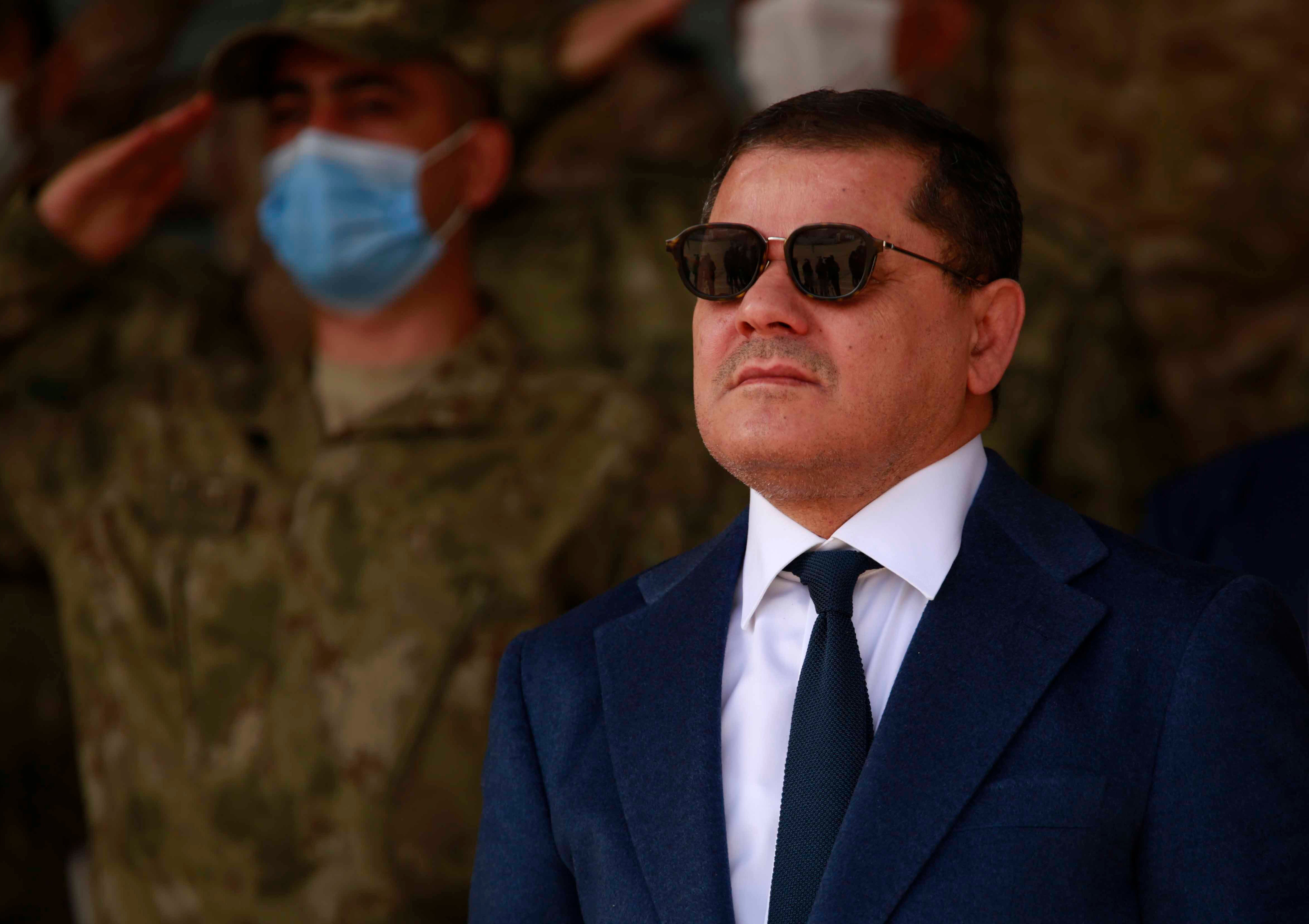Libya PM defiant as lawmakers set to name new leader
Libya’s prime minister has taken a defiant stand against efforts to appoint a new interim government

Your support helps us to tell the story
From reproductive rights to climate change to Big Tech, The Independent is on the ground when the story is developing. Whether it's investigating the financials of Elon Musk's pro-Trump PAC or producing our latest documentary, 'The A Word', which shines a light on the American women fighting for reproductive rights, we know how important it is to parse out the facts from the messaging.
At such a critical moment in US history, we need reporters on the ground. Your donation allows us to keep sending journalists to speak to both sides of the story.
The Independent is trusted by Americans across the entire political spectrum. And unlike many other quality news outlets, we choose not to lock Americans out of our reporting and analysis with paywalls. We believe quality journalism should be available to everyone, paid for by those who can afford it.
Your support makes all the difference.Libya’s prime minister took a defiant stand Tuesday against efforts to appoint a new interim government, a position that could lead to a flare-up of conflicts between rival factions in the deeply divided nation.
Prime Minister Abdul Hamid Dbeibah said in televised speech that he will not hand over power with the country’s parliament is scheduled to name a new premier on Thursday.
“I will not allow a new transitional period,” he said. “The Government of National Unity will continue until handing over power to an elected administration.”
He warned that naming a new primer minister will lead the country back to “division and chaos” after nearly two years of relative calm. He called for street protests to denounce the appointment of a new transitional government.
The effort to replace Dbeibah stems from Libya’s failure to hold its first presidential election during his watch. It has been a major blow to international efforts to end a decade of chaos in the oil-rich Mediterranean nation.
The presidential vote was originally planned for Dec. 24, but it was postponed over disputes between rival factions on laws governing the elections and controversial presidential hopefuls. Lawmakers have argued that the mandate of Dbeibah’s government ended on Dec. 24.
The House of Representatives is scheduled to convene Thursday to name either former Interior Minister Fathi Bashaga or Minister-Counsellor Khalid al-Baibas as the new prime minister.
With Dbeibab insisting on remaining on power, the appointment of a new prime minister will likely produce two parallel administrations. This increases the possibility of renewed fighting in a country largely ruled by lawless militias and armed groups.
Dbeibah, a powerful businessman from Misrata was appointed prime minister in February last year as part of a U.N.-brokered, Western-backed political process. His government’s main task was to steer the deeply divided country toward national reconciliation and lead it through elections.
The elections were the lynchpin of U.N.-mediated efforts to bring peace to the oil-rich North African nation.
He has become a polarizing figure since he announced his presidential bid, breaking his pledge not to run in elections when he was appointed as an interim prime minister.
The incumbent prime minister said he embarked on consultations to agree on a new roadmap to hold elections in June, a date the U.N. mission in Libya seeks to reschedule the vote.
However, elections are unlikely to take place within less than five months, since elections commission said it need at least eight months to prepare for a new vote. And the main challenges that led to the Dec. 24 vote postponement remain unsettled.
Libya has been wrecked by conflict since the NATO-backed uprising toppled then killed longtime dictator Moammar Gadhafi in 2011. The country was for years split between rival administrations in the east and west, each supported by militias and foreign governments.